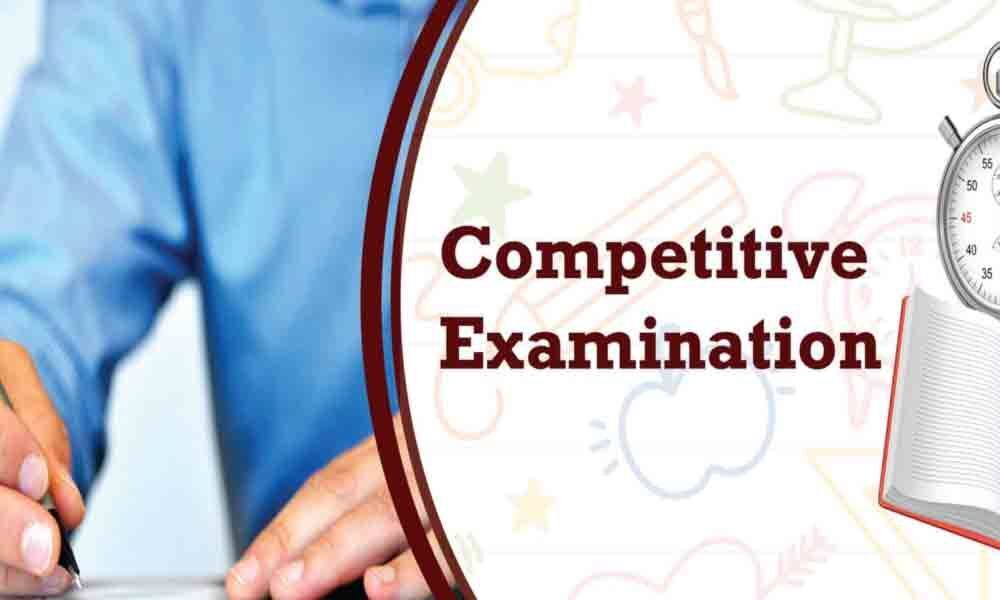cracking the hard nut

The competitive examination comprises two successive stages
The competitive examination comprises two successive stages:
Stage 1: Civil Services (Preliminary) Examinations (Objective Type) for the selection of candidates for Main Examination; and
Stage 2: Civil Services (Main) Examination (Written and Interview) for the selection of candidates for the various services and posts.
Preliminary Examination is meant to serve as a screening test only; the marks obtained in the Preliminary Examination by the candidates who are declared qualified for admission to the Main Examination will not be counted for determining their final order of merit. The number of candidates to be admitted to the Main Examination will be about 12 to 13 times the total approximate number of vacancies to be filled in the year in the various Services and Posts. Only those candidates who have qualified in the Preliminary Examination in a year will be eligible for admission to the Main Examination.
Candidates often find UPSC Civil Services Examination a hard nut to crack. This is not due to lack of hard work or potential, but lack of right strategy and smart work which makes the difference.
Preliminary Examination
The Preliminary Examination basically serves as a screening test to shortlist candidates for the next stage, the Main examination.
• The Preliminary Exam consists of two objective type papers (multiple-choice questions). Each paper has 200 marks each and two hours allotted. Since this is a qualifying exam, the marks obtained in this test are not counted for determining the final order of merit of a candidate if he qualifies for the main exam as well.
• There will be negative marking (of one-third marks for that answer) for wrong answers marked by a candidate in the objective type question papers. Only a black ballpoint pen may be used for both writing and marking answers in the OMR sheet (answer sheet). Pens of any other colour, pencils or ink pens are prohibited.
• The medium of the question paper is both English and Hindi.
Civil Services - Preliminary Examination - Syllabus
The topics that will be covered in both the papers are listed below.
Paper I - (200 marks) Duration: Two hours
• Current events of national and international importance
• History of India and Indian National Movement
• Indian and World Geography - Physical, Social, Economic Geography of India and the World
• Indian Polity and Governance - Constitution, Political System, Panchayati Raj, Public Policy, Rights Issues, etc.
• Economic and Social Development Sustainable Development, Poverty, Inclusion, Demographics, Social Sector initiatives, etc.
• General issues on Environmental Ecology, Bio-diversity and Climate Change - subject specialisation not required.
General Science
Paper II - (200 marks) Duration: Two hours - this is a qualifying paper, candidates should score minimum 33% to qualify
• Comprehension
• Interpersonal skills including communication skills
• Logical reasoning and analytical ability
• Decision-making and problem-solving
• General mental ability
• Basic numeracy (numbers and their relations, orders of magnitude, etc.) (Class X level), Data interpretation (charts, graphs, tables, data sufficiency etc. - Class X level
This is the first stage of the exam and should never be taken lightly. The preparation should be such that you should not have any doubt about clearing the exam. The prelims should only be a passing phase. If you prepare well for the mains exam and be clear about the basics, then prelims should not be problem.
The main focus should be on the optional subject first. At the same time the GS should be done regularly. Since there is well-defined syllabus for the optional, you should prepare thoroughly in all aspects and score as much as possible. The preliminary exam is a test of recognition. It is sufficient if you can recognise the correct answer from given choices. So, if you are strong in basics this should not be problem. Do not spend too much time in memorising facts. It's fine if you can recognise it. Prepare some mnemonics, which will help you in recognizing the right answer. One should do as many previous year papers as possible.
It will help you in time management and also in identifying the weak areas. Please remember that this practice should be right from the beginning and not in the final stages.
Negative Marking
UPSC has taken a right step introducing negative marking to filter out candidates who get selected on the basis of smart guesses and luck. So, the serious candidates should cheer up now. Negative marking make paper more complex. But it is easy for a well prepared students and gives an extra benefit to a genuine candidates.
How to tackle negative marking?
• Identify the areas of your strength in the question paper. Solve questions from those areas first. Solving easy question will boost your confidence.
• Don't waste your time for particular questions. Leave time consuming questions to take up in the end.
• The definition of intelligent guessing changes now with negative marking. You should tick only those answers which you feel 70% correct.
• Don't play any blind and stupid game of guessing.
• Practice…Practice…Practice…Mock tests reduce mistake in the exam and prepare you to face real environment in which you can tackle & solve the questions within time limit.
• Mock tests provide you a platform where you can check your own weakness, mistakes and errors and develop a better understanding for solving different types of questions.








